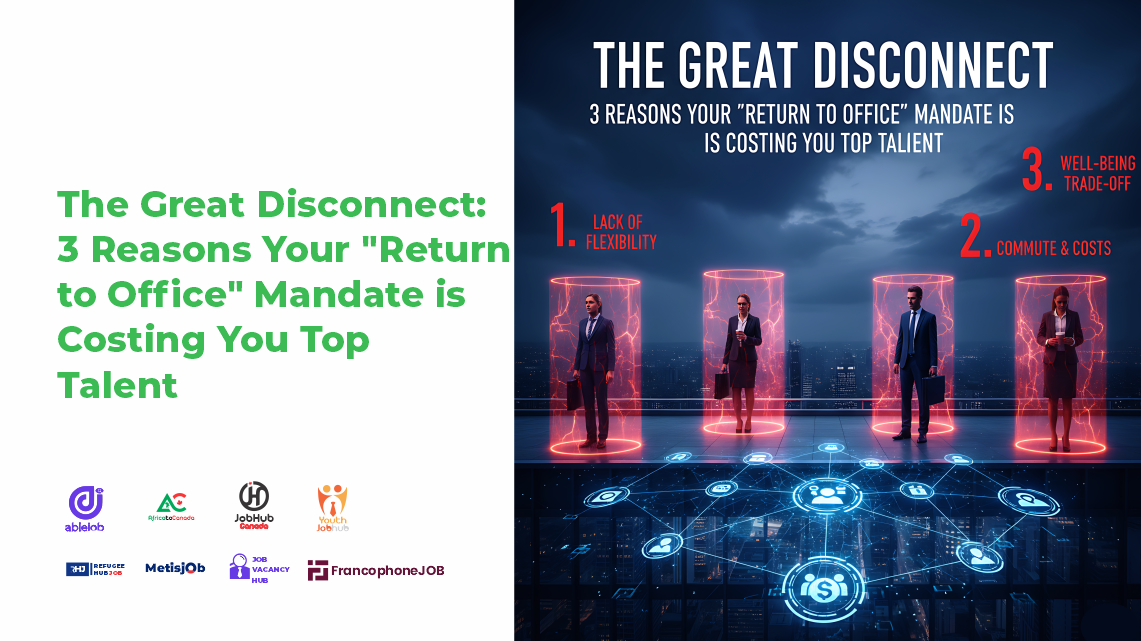October 28, 2025

Across Canada, a new workplace conflict is taking shape. Executives, citing the need for "collaboration" and "company culture", are rolling out firm Return to Office (RTO) mandates. In their view, it’s a return to normal.
But for a significant portion of their workforce, "normal" has changed.
This is the "Great Disconnect": the growing gap between what employers are demanding and what their top-performing employees value. For the last several years, Canadian professionals have proven they can be productive, dedicated, and successful from their home offices. Now, a forced five-day commute feels less like a return to culture and more like a step backward.
As a recruitment agency that speaks to leaders and top candidates every day, we see the fallout. Your rigid RTO mandate isn't just an unpopular policy—it's a costly business decision. Here are three critical reasons why it's costing you top talent.
Before 2020, your talent pool was defined by geography: "Who can reasonably commute to our downtown Toronto (or Calgary, or Vancouver) office?"
Today, your competitors have thrown that map away.
While you are limiting your search to a 30 km radius, your flexible competitors are hiring the absolute best person for the job, whether they live in Kelowna, Halifax, or a suburb three hours away. They are tapping a national talent pool, while your mandate forces you to settle for the "best person within commuting distance".
By demanding a full-time, in-office presence, you are not just competing with other local companies; you are competing with every remote-first and hybrid company in the country. You have effectively given your competitors a massive hiring advantage and shrunk your own talent pool by choice.
High-performing employees are driven by results, not by "presenteeism". They are the autonomous, self-motivated individuals who kept your business running—and in many cases, growing—during a global pandemic.
A rigid RTO mandate sends them a clear, unintended message: "We don't trust you."
It implies that their years of proven, remote productivity don't matter. It signals that you value seeing them at a desk more than you value the work they produce. This perceived lack of trust is the single fastest way to kill morale and engagement. Top talent want to be treated like the professionals they are. When they feel micromanaged or distrusted, they don't just get frustrated—they open their laptops and start looking for an employer who values their performance, not just their physical presence.
The definition of a great job offer has fundamentally changed. A competitive salary and benefits are now just the table stakes. The new, critical variable in the equation is time.
Top candidates are doing the maths.
When you present an in-office-only role, candidates see it as a functional pay cut in both time and money. Faced with two similar salary offers, the high-demand professional will always choose the one that gives them 7.5 hours and 3,000–5,000 back.
How to Bridge the Disconnect
This isn't to say the office is dead. The solution isn't "all remote", but "all intentional". The future of work is personalised. It’s about building a model that works for your business goals and respects your employees as high-performing adults.
At africatocanadajob.ca Recruitment Services, we do more than just fill positions. We help our clients prepare for what's next. We specialise in identifying transformation-ready talent and helping you build the flexible, trust-based, and high-performance teams that will win in this new era of work.